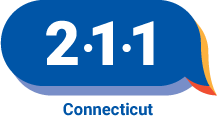211 Connecticut to Double Staffing for Phone-based Crisis Response Team, Expanding Resources Amidst Suicide Prevention and Awareness Month
/As September draws to a close, we’re reminded that this is National Suicide Prevention and Awareness month. A year and a half of a pandemic has heightened awareness of the pervasiveness of suicide, even in the early months. Research from the Kaiser Family Foundation indicates that mental health concerns are up by as much as 300% nationally in the wake of the pandemic and its impacts.
In 2020, 33% (122,507) of all calls handled by 211 Contact Specialists in Connecticut were from callers in crisis. During 91% of adult crisis calls, callers reported that their state of crisis diminished while they were on the phone with a 211 contact specialist. Less than 1% of callers required an active rescue or medical emergency response from 911. Such is the power of someone on the other end of a phone line with the preparation and skills to be of meaningful help.
United Way of Connecticut reaffirmed its committed to raising awareness about important mental health and suicide prevention resources. New funding from the Department of Mental Health and Addiction Services (DMHAS) and Department of Children and Families (DCF) will allow United Way of Connecticut 211 to double the size of the crisis team and thereby ensure expanded availability to help Connecticut residents in need.
“If you are looking for help, information, or access to mental health resources, our 211 Connecticut Crisis Intervention Team is available 24/7,” said Lisa Tepper Bates, President & CEO of United Way of Connecticut. “The crisis team offers help to callers in emotional distress or expressing suicidal ideations. This support is more important now than ever before, given the continued stress related to the COVID-19 pandemic.”
“As our state works to double down on its commitment to suicide prevention and mental health services, especially at this stressful time as the national pandemic response continues, we are pleased to work with 211 to expand the resources available to help Connecticut residents in need,” said Acting Commissioner Nancy Navarretta of the Department of Mental Health and Addiction Services.
“The support of the 211 crisis team for children and youth in need of support, and for their parents and caregivers, is critically important in our efforts to ensure that help is always available – any time of the day, any day of the week. We are excited about our continued discussions underway with United Way of Connecticut to expand our work to go upstream on mental health – and expand our work with younger children and their caregivers to promote mental health awareness and enhance self-care knowledge,” said Commissioner Vannessa Dorantes, Department of Children and Families.
For more information about mental health resources in Connecticut visit the Mental Health Page on the 211 Connecticut website (www.211ct.org). There are, in addition, numbers private and public agencies providing advocacy on the issue and offering support and assistance.
The Connecticut Suicide Advisory Board (CTSAB) is a network of diverse advocates, educators and leaders concerned with addressing the problem of suicide with a focus on prevention, intervention, and health and wellness promotion. It includes over 600 people and 200 agencies representing state and local agencies, profit and non-profits, community and faith-based organizations, hospitals, military, schools, higher education, towns, private citizens, students, survivors, individuals with lived experience, and advocates.
The CTSAB was established January 2012 through the merger of the 1989 legislatively-mandated CT Youth Suicide Advisory Board under the CT Department of Children and Families, and the CT Department of Public Health’s Interagency Suicide Prevention Network to create one state-level Suicide Advisory Board to address suicide across the lifespan.
The CTSAB is tri-chaired by the CT Department of Mental Health and Addiction Services and the Department of Children and Families, and CT Chapter of the American Foundation for Suicide Prevention, and is the single state-level advisory board in Connecticut that addresses suicide prevention, intervention and response across the lifespan.
“Our state has come together to build a robust system dedicated to suicide prevention. The crisis team at United Way of Connecticut 211 stands ready to respond with empathy and support to those struggling and serves as the front door to our state’s mental health resources and mobile response teams, working in close coordination with DMHAS and DCF,” said Lieutenant Governor Susan Bysiewicz.
Infographics: afsp.org/statistics

































